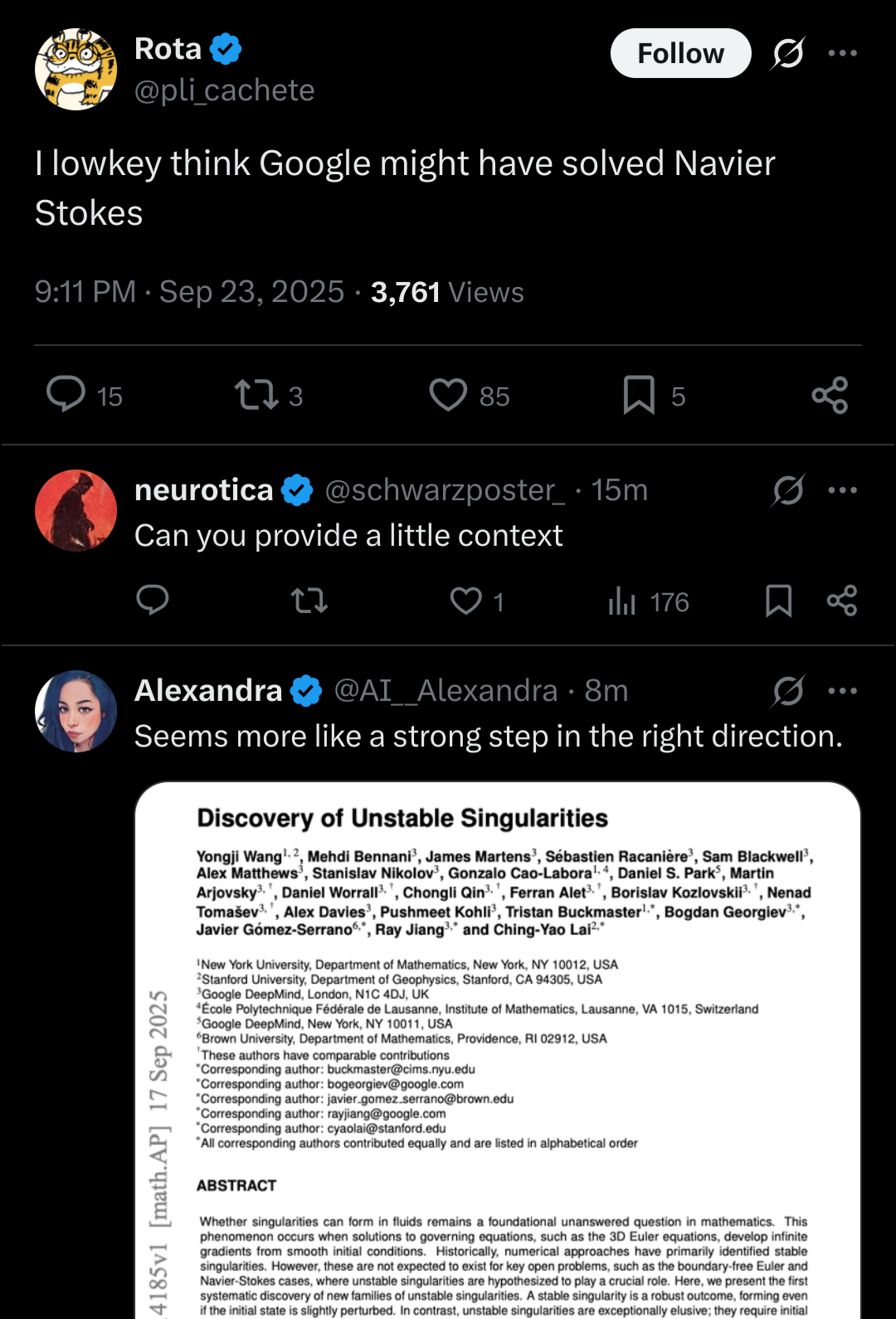Resolves yes if it is solved and at least one of the principle authors of the paper worked for Alphabet/Google at the time of the research , or the principle authors directly cite research published by Alphabet/Google as major components of the final paper

People are also trading
A good question could be if anything impossible happens either way. If for example solving it allows for over-unity, or some parts of a fluid to travel backwards in time, or the energy somewhere to be infinite. We can start by assuming some things are impossible and then work backwards to rule out some possible answers.
will give my left hoof if this resolves yes. google’s approach might help uncover behavior of some of the remaining singularities, but ultimately the only way we’re seeing a YES is if these additional PINN-ansatz singularities paint enough of a picture to show complete nonexistence of finite-time singularities in the next year, which is a wild assertion.
on top of this, while the findings in the paper are interesting, iterative application of NN ansatzes to PDEs is nothing new—this has been a known technique used in ML for computational chemistry for over a decade now. respectfully feels like this was more a marketing stunt than anything.